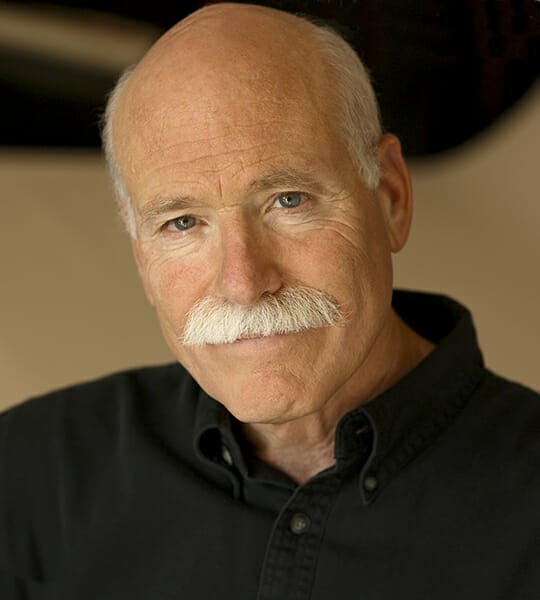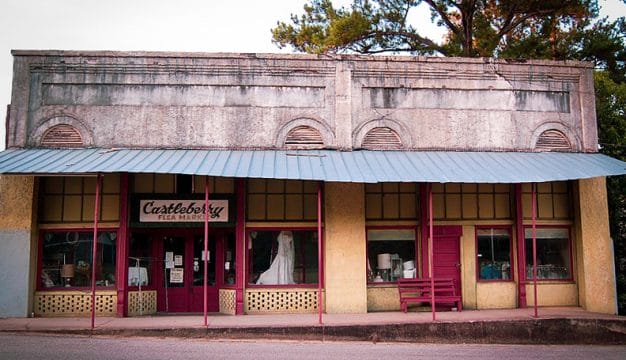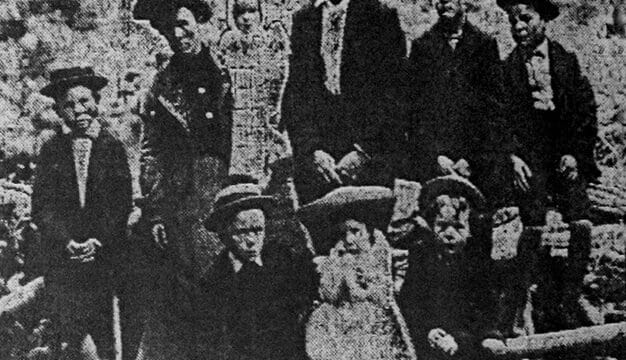Tobias Wolff
Author and educator Tobias Jonathan Ansell Wolff (1945- ) is best known for his short stories and memoirs, most notably This Boy’s Life, published in 1989. The memoir gained wider recognition through its 1993 Warner Brothers film adaptation of the same name starring Robert De Niro, Ellen Barkin, and Leonardo DiCaprio. The adventures and struggles of his youth and early adulthood and military service in Vietnam have provided Wolff with the inspiration for his fiction and the remarkable details of his memoirs.
 Tobias Wolff
Wolff was born in Birmingham, Jefferson County, on June 19, 1945, to Rosemary Loftus and Arthur Samuels Wolff; he had one sibling. Wolff’s father falsely presented himself in society and working life as a military hero and took on other guises, which eventually landed him in jail for more than two years. Wolff’s parents divorced when he was a young child; his brother Geoffrey (also a memoirist) went to live with their father, but Tobias stayed with his mother and relocated to Florida. He was greatly influenced by his mother’s zeal for adventure as they travelled across the country from Florida to Washington State in a Nash Rambler in search of security, fortune, and the good life. When Wolff was about 10 years old, he and his mother left Florida for the dream of getting rich by prospecting for uranium in Utah, only to be disappointed. They remained out West, settling in Concrete, Washington, where his mother married a violent and bullying man, Dwight Thompson. In This Boy’s Life, Wolff recounts the neglect and abuse he and his mother endured from his father and stepfather but also forthrightly depicts his own lying, stealing, drinking, and delinquency.
Tobias Wolff
Wolff was born in Birmingham, Jefferson County, on June 19, 1945, to Rosemary Loftus and Arthur Samuels Wolff; he had one sibling. Wolff’s father falsely presented himself in society and working life as a military hero and took on other guises, which eventually landed him in jail for more than two years. Wolff’s parents divorced when he was a young child; his brother Geoffrey (also a memoirist) went to live with their father, but Tobias stayed with his mother and relocated to Florida. He was greatly influenced by his mother’s zeal for adventure as they travelled across the country from Florida to Washington State in a Nash Rambler in search of security, fortune, and the good life. When Wolff was about 10 years old, he and his mother left Florida for the dream of getting rich by prospecting for uranium in Utah, only to be disappointed. They remained out West, settling in Concrete, Washington, where his mother married a violent and bullying man, Dwight Thompson. In This Boy’s Life, Wolff recounts the neglect and abuse he and his mother endured from his father and stepfather but also forthrightly depicts his own lying, stealing, drinking, and delinquency.
The most significant instance of Wolff’s deceitful behavior is perhaps his application to The Hill School, an elite preparatory school in Pottstown, Pennsylvania. When Wolff was 15, his brother encouraged him to apply to boarding school to escape his abusive stepfather and seemingly dead-end life at Concrete High School. Wolff gained entrance to The Hill by forging letters of recommendation on Concrete High letterhead in his teachers’ names. Wolff struggled at The Hill for two years and finally was expelled in 1964 because of his math grades. In 1990, The Hill awarded him a diploma as a member of the Class of 1964.
After leaving The Hill, Wolff volunteered for the U.S. Army. Wolff completed Officer Candidate School and Special Forces training and then was trained in the Vietnamese language; he would go on to serve as an advisor in South Vietnam during the Tet offensive of the Vietnam War. He experienced several close brushes with death, including a grenade beneath his jeep that did not explode and being passed over for a dangerous mission. After being discharged from the Army in 1968, Wolff attended Hertford College of Oxford University in the United Kingdom, earning both a bachelor’s and master’s degree in English with honors. After graduation, he worked at various jobs, including reporting for the Washington Post (where his brother had begun writing obituaries and would later write book reviews) and teaching high school to support himself while continuing to write. Wolff published his first novel, Ugly Rumors, in 1975 while in England. He set the story in Vietnam and based it loosely on his experiences in the war, but it received little attention. In fall 1975, Wolff entered graduate school at Stanford University in Stanford, California, on a Wallace Stegner fellowship. That same year, Wolff married Catherine Dolores Spohn, with whom he would have three children. He earned another master’s degree in 1976 and also published his first story, “Smokers,” in The Atlantic.
From 1980 to 1997, Wolff taught at Syracuse University in New York. In 1982, he published his first collection of short stories, In the Garden of North American Martyrs, which won the St. Lawrence Book Award, given annually by Black Lawrence Press. The collection features tales of everyday life and everyday people who go slightly awry, such as a group of hunters who shoot one of their party and get lost trying to take him to a hospital, or a college professor who breaks from decorum at a sham job interview and presents a horrifying story of martyrdom to a roomful of unsuspecting professors. Wolff would go on to publish two additional collections of short stories. In 1984, he published, The Barracks Thief, a novella about three young paratroopers waiting to be sent to Vietnam that won the PEN/Faulkner Award for Fiction. The novella explores the relationships among the men and their responses when they discover a thief stealing from the soldiers. Ten years later, he produced his second memoir, In Pharaoh’s Army: Memories of the Lost War (1994), this time recounting his military experience and his experiences at Oxford. In 1997, he took a teaching position at Stanford. Wolff’s second novel, Old School, was published in 2003. It tells the story of a boy, the narrator and protagonist, who is out of place at an elite prep school, much like Wolff’s real-life experiences at The Hill. The unnamed narrator, a high school senior, recounts how he and his friends compete to win an audience with literary personalities of the day, including Robert Frost, Ayn Rand, and Ernest Hemmingway.
Wolff is careful to distinguish between his memoirs, which recount actual events, and his short stories and novels, which are inspired by life but are not factual accounts. The two forms of Wolff’s writing resemble each other, however, in their themes of violence and deceit and in their straightforward, unadorned prose. Although Wolff resists being labeled as part of a literary school, critics often refer to his writing as dirty realism. A Catholic, Wolff engages religion in some of his stories, though not in a moralizing tone. Instead, he suggests that the influence or presence of God in one’s life, or grace, may be found in the commonplace and ordinary circumstances of his stories.
Wolff resides in Stanford and is the emeritus Ward W. and Priscilla B. Woods Professor in the School of Humanities and Sciences at Stanford University. In 2015, he received a National Medal of Arts from Pres. Barack Obama.
Selected Works by Tobias Wolff
Ugly Rumors (1975)
In the Garden of the North American Martyrs (1981)
The Barracks Thief (1984)
Back in the World (1985)
This Boy’s Life: A Memoir (1989)
In Pharaoh’s Army: Memories of the Lost War (1994)
The Night in Question (1996)
Old School (2003)
Our Story Begins (2008)
Additional Resources
Livings, Jack. “Tobias Wolff, The Art of Fiction No. 183.” The Paris Review 171 (Fall 2004); http://www.theparisreview.org/interviews/5391/the-art-of-fiction-no-183-tobias-wolff.
Campbell, James. “Brutal Beginnings.” The Guardian, July 18, 2008: 110. http://www.theguardian.com/books/2008/jul/19/fiction2.
“The Big Read: Old School by Tobias Wolff.” NEA Big Read: Meet Tobias Wolff. National Endowment for the Arts. 2010. http://arts.gov/video/nea-big-read-meet-tobias-wolf.



